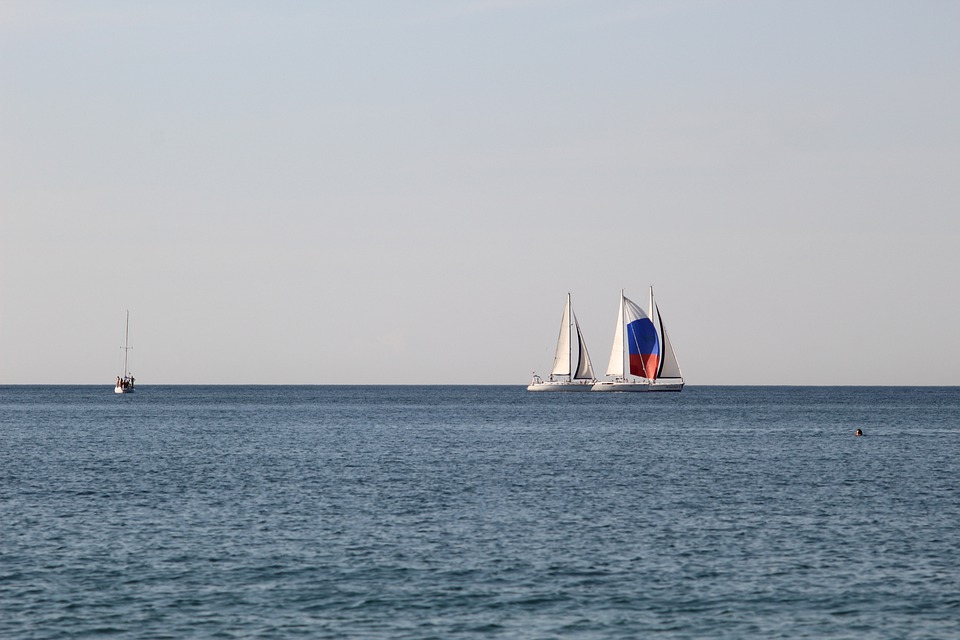Passing a boat on the water is nearly as common as passing an automobile on the highway. The rules are, however, remarkably different. Knowing the proper method of passing another boat is essential for safe operation and collision avoidance.
Any vessel that is overtaking (passing) any other vessel must always give way and keep out of the way of the vessel being overtaken. This rule applies whether you are operating a jet ski, sailboat, motor boat or any other type of boat.
The vessel being overtaken (passed) has duties as well. It must maintain course and speed while it is being passed. Therefore, the overtaking vessel can rest assured that the vessel being overtaken will not make a sudden course change creating a risk of collision.
The overtaking vessel is allowed to pass on either the port (left) or the starboard (right) side of the vessel being overtaken, but communication needs to be made between the vessels to alert the vessel being overtaken that he is about to be passed and also to let the vessel being overtaken know whether he will be passed on his port side or starboard side.
In many unfortunate instances, an overtaking vessel makes no attempt to communicate with the vessel being overtaken and simply roars past on the port or starboard side of the overtaken vessel, often creating a risk of collision or perhaps danger from a large wake. Nobody likes to be surprised, especially when underway.
Therefore, communication between vessels is required. Under the Inland Rules, a power driven vessel intending to overtake another power driven vessel must sound the following whistle signals demonstrating intent:
One short blast of the horn means “I intend to overtake you on your starboard side.”
Two short blasts means “I intend to overtake you on your port side.”
If the vessel being overtaken agrees, it must reply with an identical one or two blast signal. If the vessel being overtaken does not agree or feels that there is a danger presented, it must sound the danger signal consisting of five or more short blasts.
As a practical matter, especially in a motor boat, engine noise can be quite loud and it can be difficult to hear a horn or whistle blast sounded by the overtaking vessel. If you are overtaking a vessel and they haven’t acknowledged your horn or whistle blows, then they probably don’t know you are approaching. Try contacting them on channel 16 to advise them that they are being overtaken. Be sure to pass a vessel at a safe distance and only after the vessel being overtaken is aware of your presence and intentions.
The hiring of a lawyer is an important decision that should not be based solely upon advertisements. This website is designed for general information only. The information presented at this site should not be construed to be formal legal advice nor the formation of a lawyer/client relationship. Please do not send any confidential information to us until such time as an lawyer/client relationship has been established. The Law Office of Clinton W. Lanier, Esq., represents individuals and businesses throughout Florida.

